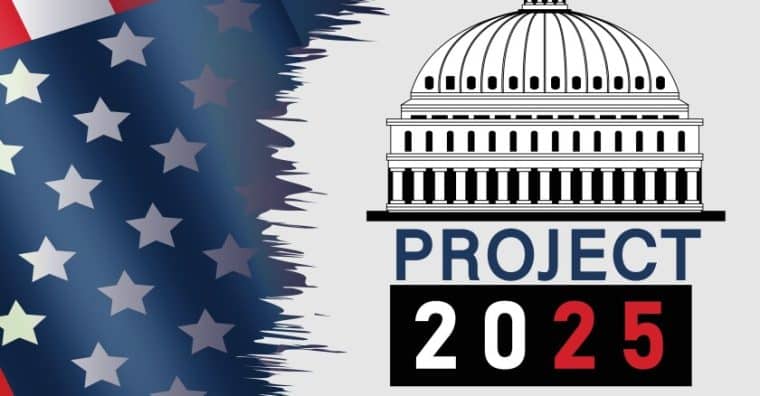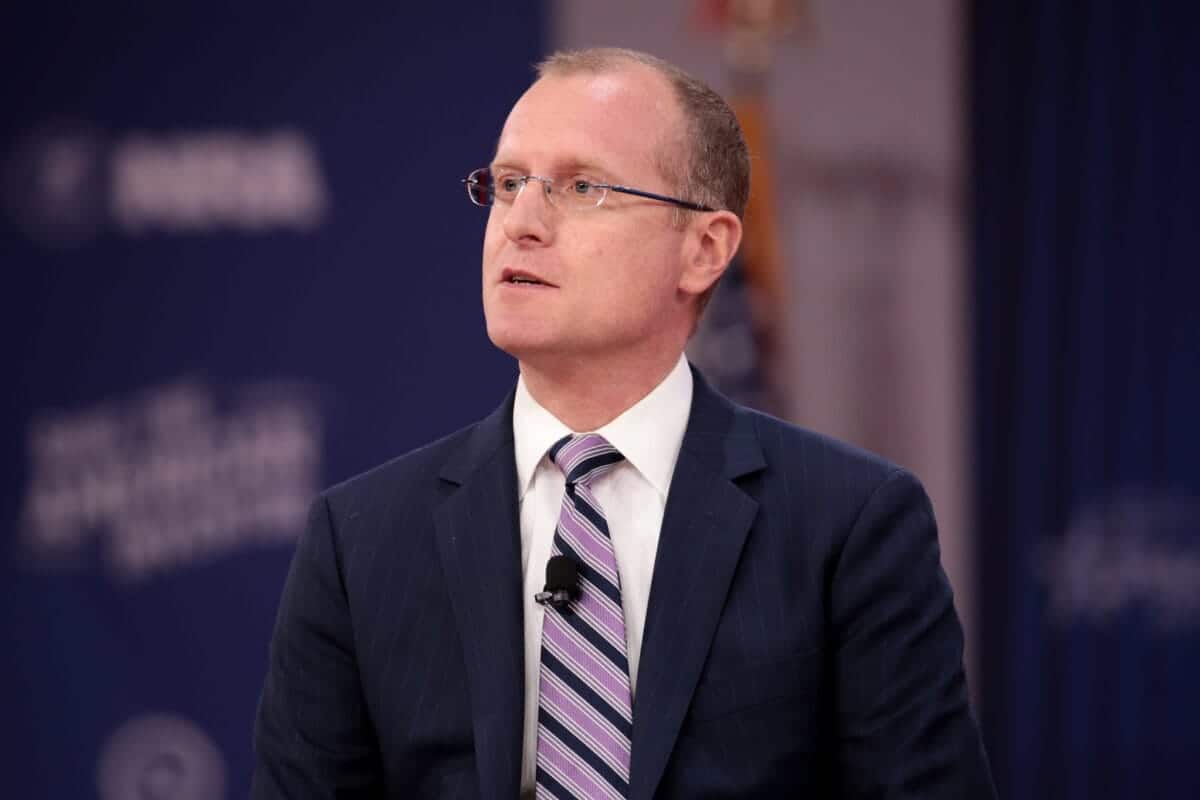As President Donald Trump continues to take his victory lap following his crushing win over the Democratic contender Kamala Harris, media outlets have been focusing on who he will be appointing to critical roles in his administration. The president is a powerful role in itself but its power to appoint officials accross the government can be just as influential (if not more so).
The highly likely appointment of Brendan Carr as the head of the Federal Communications Commission (FCC) has gained the attention of telecom-specialized magazine amid his ties with the controversial Project 2025 – am extremist conservative political paper drafted by the Heritage Foundation that lays the groundwork for a radical change in how the US addresses multiple subjects from immigration to media control.
Carr authored one of the chapters of the project that discusses methods to reshape the agency and deregulate the telecom industry. He has opposed the status quo of the regulatory body for years and may now have the chance to bring some of his most radical ideas to life if he is appointed by Trump to the Commission’s top seat.
Also read: Bitcoin Surges to Record High as Traders Welcome Trump Victory
His Project 2025 chapter emphasizes that the Chairman of the agency must have significant authority to the extent that the holder of the position can make decisions without the need to be followed by fellow commissioners.
Moreover, a Carr-led FCC may bring down the hammer on Big Tech practices to ensure that the industry’s practices are aligned with “promoting national security, unleashing economic prosperity, and ensuring FCC accountability and good governance.”
These goals align closely with the broader vision of Project 2025, which aims to fundamentally transform the federal government along conservative lines.
Social Media Companies May Be Forced to Contribute to the FCC’s Universal Service Fund

One of Carr’s key priorities is cracking down on major tech companies, which he views as a threat to individual liberties. Specifically, he advocates for the FCC to issue an order that would “eliminate the expansive, non-textual immunities that courts have read into” Section 230 of the Communications Decency Act.
Section 230 currently provides legal protections for online platforms that host third-party content and allows them to moderate content without facing any liability.
Both Trump and Carr believe that the FCC should interpret the law in a way that significantly undermines these protections. Industry observers believe that this could lead platforms to heavily censor content to avoid facing legal risks.
Trump tried to push the FCC in this direction in 2020 to punish social media companies for what he alleged was an anti-conservative bias. He went as far as to change his nominee for the FCC Chairman position at the time just because the candidate did not share his views on this matter.
Carr has also voiced his discontent with the social media platform TikTok and its ties to the Chinese government. He has emphasized that authorities’ reluctance to crack down on its data-sharing practices “provides Beijing with an opportunity to run a foreign influence campaign.”
Trump and Carr may also be aiming to favor internet service providers (ISPs) by making several changes to existing rules. Carr, currently the top Republican Commissioners on the FCC, is against the proposals made by the Biden administration concerning broadband access and data caps.
He advocates for the contribution of social media companies to the FCC’s $9 billion Universal Service Fund – an initiative to which telecom companies are forced to contribute. This would spread regulatory costs among a larger group of companies that would now include corporations like Meta Platforms (META), X (formerly Twitter), and Snapchat (SNAP).
Carr is Accused of Partisan Bias After NBC Incident

Carr’s partisan bias has alarmed political analysts and observers as he has challenged networks like NBC for allegedly allowing Democratic candidates more air time than granted to their Republican peers – a decision that he said violates the FCC’s Equal Time provision.
He was called out after accusing the network of inviting Kamala Harris to participate on Saturday Night Live (SNL) and not Trump. Carr threatened the network with penalties for breaching these rules. In reality, Trump was allowed equal time on NBC, just not on SNL.
“The purpose of the rule is to avoid exactly this type of biased and partisan conduct—a licensed broadcaster using the public airwaves to exert its influence for one candidate on the eve of an election. Unless the broadcaster offered Equal Time to other qualifying campaigns,” he wrote in a statement.
Also read: Trump Staffer Says Elon Musk Won’t Get the Government Job They Promised
The media advocacy group Free Press rapidly criticized his comments and deemed them a “wrongheaded attempt to curry favor with a presidential candidate.”
He has been accused of pushing for biased agendas that favor his party’s interests rather than advocating for consumers’ rights and leveling the playing field for companies. The head of Free Press, Jessica Gonzalez, went as far as to categorize his rhetoric as a sign that he is “desperate to become the FCC chair.”
The commissioner’s ties to Project 2025 have further fueled concerns about potential conflicts of interest. This initiative has been closely linked to Trump’s inner circle and a recent investigation from CNN uncovered that at least 140 people who worked in the former president’s administration were involved in drafting the roadmap.
Eliminating Net Neutrality Could Negatively Impact Free Speech
Experts believe that a Carr-led FCC will likely abandon any initiatives that seek to strengthen consumer protections and focus on policies that favor large telecom companies and ISPs.
Carr advocates for the controversial elimination of the net neutrality rule – a provision that prevents ISPs from blocking or slowing down the distribution of certain types of content within their networks.
If he manages to bring down this rule, ISPs will have greater control over the quality of service that consumers experience when interacting with certain platforms and applications.
Also read: Experts Say Elon Musk Trump PAC’s $1M Giveaways Are Illegal: Here’s Why
This modification could also empower the government to meddle in the content moderation decisions of private companies, which could lead to increased censorship and the suppression of diverse viewpoints.
In addition, his desire to reinterpret Section 230 may have an immediate impact on content moderation rules that could harm free speech rights as platforms will be forced to intervene more aggressively on what they allow users to see to avoid facing legal proceedings.
Safeguarding the FCC’s Consumer-Centered Approach Seems Important to Preserve American Democracy
As the Trump administration prepares to take office, the prospect of Brendan Carr leading the FCC has raised alarms among consumer advocates, free speech defenders, and those concerned about the preservation of democratic values.
The FCC’s independence and its ability to serve the public interest are critical, particularly in an era of increasing political polarization and the growing power of large technology and telecommunications companies.
Allowing an individual with such strong ties to a radical right-wing agenda like Project 2025 to wield significant influence over the agency could have far-reaching and potentially detrimental consequences for the American people.
Ultimately, the decision of who will lead the FCC in the coming years will have a profound impact on the nation’s digital landscape and on citizen’s ability to access unbiased content.
